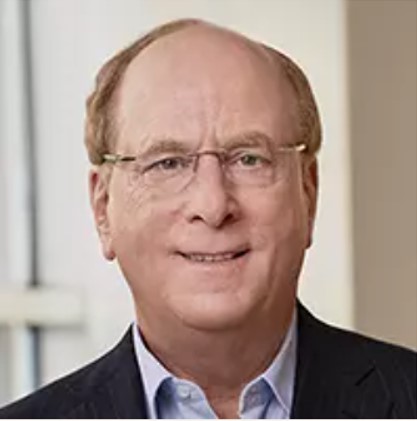Wealth Strategies
BlackRock's CEO Turns Gaze On Retirement Pressures

The CEO and chairman of the world's largest asset management firm and unafraid to stir controversy, turns his focus on retirement and viabiity of existing systems in an ageing population.
Policymakers around the world must re-think attitudes to work and
retirement because ageing populations are putting pressure on
existing models, the chairman and CEO of BlackRock, Larry Fink, says
in his annual open letter.
Fink, who hasn’t been afraid to stir
controversy in recent years – such as via his call for ESG
investment approaches – turned the focus of his annual letter to
retirement issues.
“As populations age, building retirement savings has never been
more urgent,” Fink said. “By the mid-century mark, one-in-six
people globally will be over the age of 65, up from one-in-11 in
2019. To support them, governments are going to have to
prioritise building out robust capital markets like the US
has.
“But this isn’t to say the US retirement system is perfect. I’m
not sure anybody believes that. The retirement system in America
needs modernising, at the very least.
“Despite the anti-capitalist strain in our modern politics, most
world leaders still see the obvious: No other force can lift more
people from poverty or improve quality of life quite like
capitalism. No other economic model can help us achieve our
highest hopes for financial freedom – whether we want it for
ourselves or our country,” he said.
Fink, who heads a business overseeing $10 trillion in assets
under management as at the end of 2023, knows that the sheer
scale of BlackRock gives him an almost unrivalled influence
on public and private debate. His comments gain the same level of
traction as those of renowned investor Warren Buffett.
However, Fink’s tenure has not been without controversy. In the
US, for example, in September 2023 the asset manager was sued by
the US state of Tennessee, which accused the firm of violating
consumer protection laws by misusing environmental, social and
governance factors in its investment strategy. Such clashes raise
questions the about tension between fiduciary duties to
deliver highest possible returns and the drive to
decarbonise businesses.
Besides retirement, Fink said a second major challenge is
infrastructure.
“As countries decarbonise and digitise their economies, they’re
supercharging demand for all sorts of infrastructure, from
telecom networks to new ways to generate power. In fact, in my
nearly 50 years in finance, I’ve never seen more demand for
energy infrastructure,” Fink wrote.
“And that’s because many countries have twin aims: They want to
transition to lower carbon sources of power while also achieving
energy security. The capital markets can help countries meet
their energy goals, including decarbonisation, in an affordable
way,” he wrote.
In January, asset management titan BlackRock announced that
it had acquired Global Infrastructure Partners. Acquiring GIP
creates a business with a combined $150 billion of assets under
management. (This news service has had related
thoughts on the infrastructure trend.)
Retirement choices
Back on the retirement issue, Fink said: “We focus a tremendous
amount of energy on helping people live longer lives. But not
even a fraction of that effort is spent helping people afford
those extra years.
“Today in America, the retirement message that the government and
companies tell their workers is effectively: `You’re on your
own.’ And before my generation fully disappears from positions of
corporate and political leadership, we have an obligation to
change that.
“Maybe once a decade, the US faces a problem so big and urgent
that government and corporate leaders stop business as usual.
They step out of their silos and sit around the same table to
find a solution. I participated in something like this after
2008, when the government needed to find a way to unwind the
toxic assets from the mortgage crisis.
“More recently, tech CEOs and the federal government came
together to address the fragility of America’s semiconductor
supply chain. We need to do something similar for the retirement
crisis. America needs an organised, high-level effort to ensure
that future generations can live out their final years with
dignity,” he concluded.